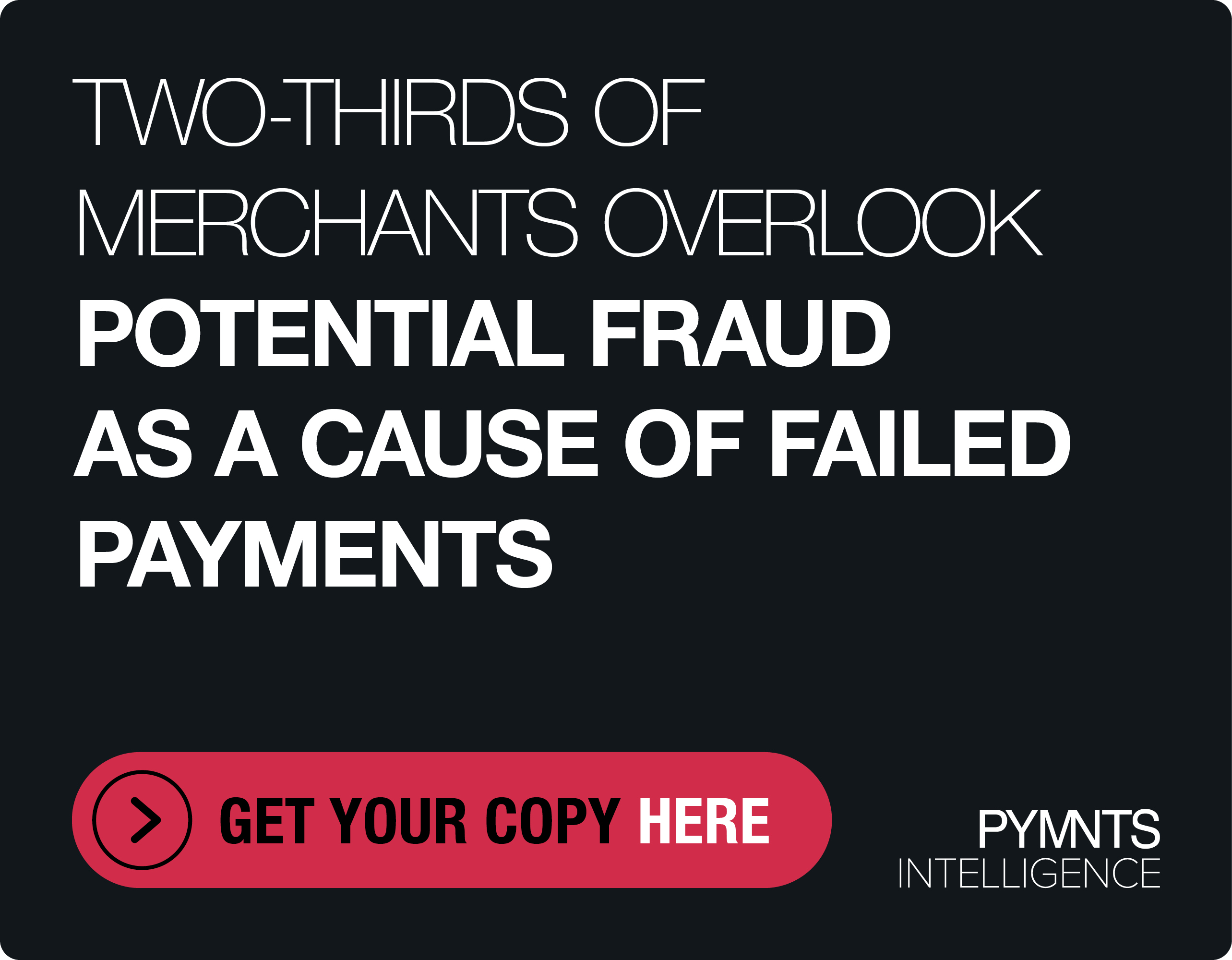Canadian Businesses Swap Checks for Commercial Cards
Checks remain a key B2B payment method in Canada, but commercial cards are changing that.
A driving force behind this is the partnership of New York-based Boost Payment Solutions and Toronto-based payment processor Moneris, as the latter is bringing more of Boost’s commercial card and straight-through processing (STP) capabilities to Canadian businesses.
In a recent PYMNTS interview, Boost Vice President of Business Development Chris Bodnar and Moneris Vice President of B2B Rob Wilkinson discussed how the two companies are working to bring greater efficiency and speed to Canada’s burgeoning B2B payments ecosystem.
With Moneris being the only merchant acquirer in Canada to offer the Boost Intercept STP solution, Wilkinson said, “You could say I was on the STP bandwagon from the beginning, even before joining the acquiring space. A major takeaway for me for B2B payments on the issuing side was how important the supplier was in moving the needle on card acceptance.”
By saying 98% of check volume in Canada today is business related, the partners see a major opportunity to make commercial cards and STP a bigger piece of the pie. Wilkinson said interest in digital B2B payments is growing because “volumes tend to hold compared to consumer in categories like travel and entertainment, and I think having a strategy focused on building and growing B2B volumes is good for everybody — issuer, buyer, acquirer, and suppliers as well.”
Bodnar cited data that check usage fell 54% in 2021 when compared to 2020 among mid-market firms, “telling us that those mid-range businesses that make up 43% of business spend made a concerted effort to move away from paper-based payments to be able to process B2B payments online.”
“We’re seeing financial services, manufacturing, food services really gravitating toward card as a preferred method of payment, you could say, as early adopters,” noted Bodnar, and on the supplier side, “we’re seeing telco utilities, professional and legal service, and definitely technology as far more open to accepting card as a form of payment in recent years.”
See also: Too Many Industry Sectors Operate in Payments ‘Dark Ages’
STP Powering Better B2B Payments
This presents both opportunities and challenges for the Boost and Moneris partnership, as stakeholders must be brought together to back B2B card payments and grow share.
“Our focus remains partnering directly with issuers and their clients to identify and campaign for acceptance against key suppliers so the issuer clients can more easily shift their payment volume to card,” Wilkinson said. It’s an easier changeover for some than others.
Saying that there’s consensus building around the need to move supplier payments to digital, he added, “I would argue that straight-through processing is among the most significant keys to success.”
Bodnar noted that the cost of borrowing in Canada is at its highest rate since December 2007, stating, “When comparing that to a working line of capital at zero cost offered in a commercial card program, the value prop for card has shifted, leading to more companies incorporating commercial card into their payments mix.”
With inflation eroding the value of receivables, Bodnar added, “Card as a form of payment is more palatable to the supplier when that working capital benefit is shared with them, and an offer is made to accelerate payments when card is accepted.”
“It’s this symbiotic relationship between the buyer and supplier, which is why we continue to see commercial card payment volumes increase,” he said.
Read more: Card Acceptance Can Improve Cash Flow for Buyers and Sellers
The Cross-Border Equation
Given the high volume of cross-border trade between Canada and the U.S., both companies are pushing for B2B commercial card solutions that are less costly and purpose-built for the task.
Calling the ideal configuration one where trading partners conduct business in both currencies without other parties involved in the foreign exchange, Wilkinson said, “The card rails provide the ability to transact in both currencies, move money across the border securely and with relative ease.”
“Right now, I believe we’re not fully utilizing these tools and I would encourage businesses that are working across the border to consider how best to leverage card rails as part of either their payment or their receivables process,” Wilkinson added.
Bodnar forecasts that placing cross-border B2B spend onto network rails “may be the next leg in the commercial card journey.”
Moreover, he said more virtual card programs are now being offered in dual currency, CAD and USD, using a bank ID number (BIN), the first six digits of the credit card, and they’re originating in the country where the supplier is processing payment.
“When that supplier processes a card payment on a BIN that is issued in the same country, there is no cross-border fee assigned to the transaction,” he said, adding that “when the buyer is eligible to use these international BINs in dual currencies, that combination can offset cross-border or foreign exchange assessments which were deemed cost prohibitive when accepting payment via card internationally.”
The use of STP, commercial cards and network rails are rising. To take full advantage, Bodnar concluded that for buyers, “when scrutinizing your cost of capital, it may be worthwhile to conduct an AP file analysis with your issuer or Moneris to identify card eligible spend, thus giving you as the buyer the option to use that no cost line to pay those invoices.”
